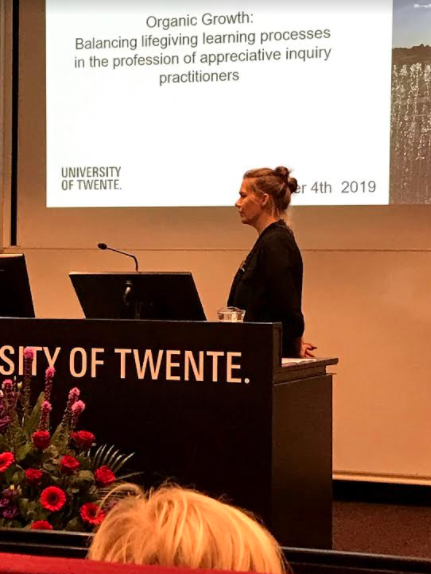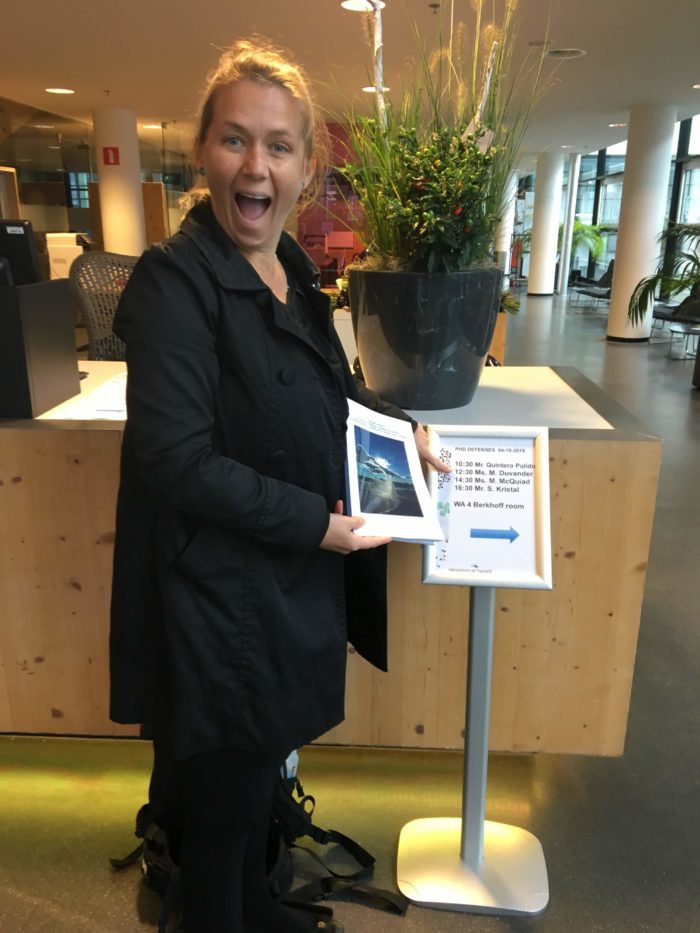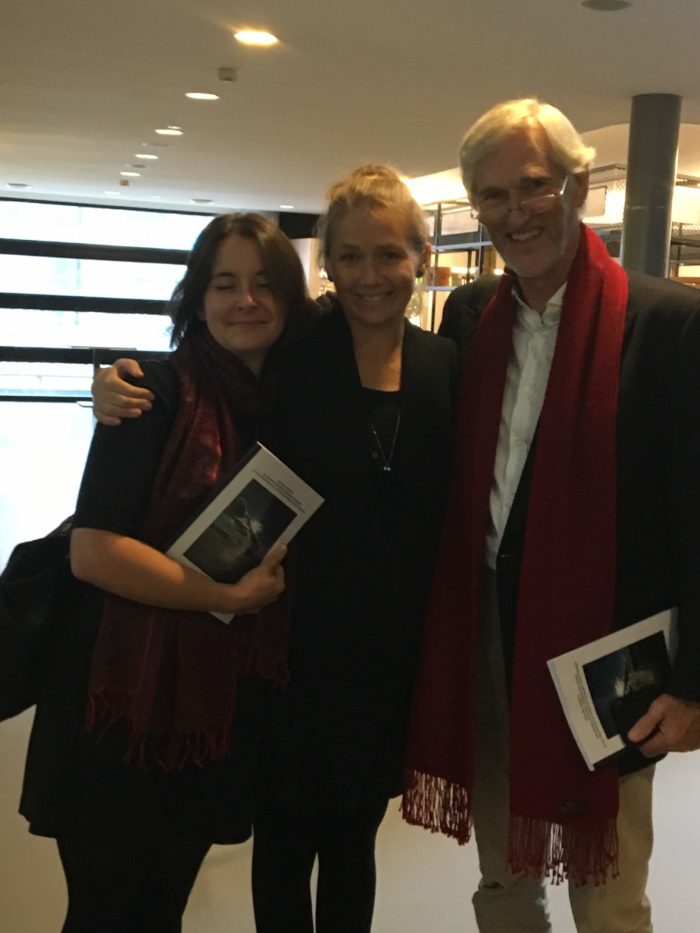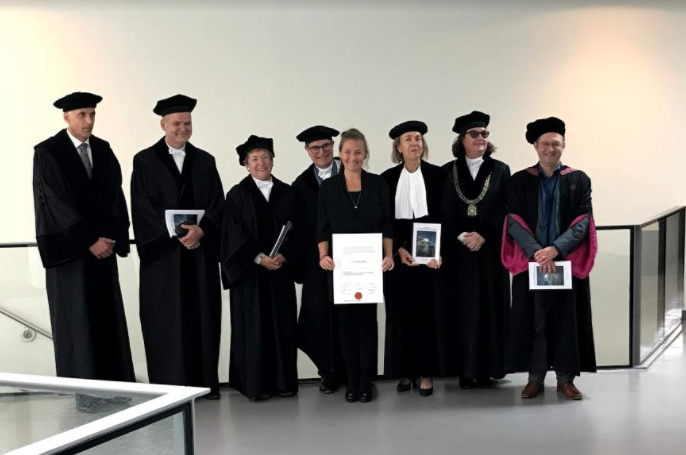Mille Themsen Duvander
DISSERTATION TITLE:
Organic Growth: Balancing Lifegiving Learning Processes in the Profession of Appreciative Inquiry Practitioners
October 2019
University of Twente
Appreciative Inquiry (AI) was conceived as a theory-building approach and at the same time a positive change method in organizational development. Since the 1980’s, the approach has spread into several other arenas, and many people have learned to focus on “what gives life to a living system when it is most alive” (Cooperrider, Whitney & Stavros, 2001, p. 3). But what about the people who profoundly apply the principles of appreciative inquiry in their personal and professional lives? What is important for appreciative inquiry practitioners’ own development processes?
It has been said that human beings are living longer but suffer more, with stress, anxiety and depression widespread as diagnoses in today’s Western cultures. The aim of this thesis is to discover what gives life to AI practitioners, with the purpose of learning from them to be inspired regarding greater wellbeing.
The study is an inquiry into the worldwide community of AI practitioners, who represent a unique context for studying human flourishing. The core phenomenon of organic growth developed in this study is based on grounded theory, in which concepts and theories emerge from the data. This process led to literature that helped give a context for the interpretation of the data; social learning theories, theories of flourishing, of consciousness development and of quantum physics. Fieldwork included twenty-four interviews and two interactive workshops with AI practitioners, as well as participant observations, and the fieldwork showed these AI practitioners’ raised levels of human flourishing. The new idea this study brings is the introduction of the social learning conceptual model of organic growth, which is a model about how AI professionals can develop in flourishing ways.
The study shows that these AI practitioners actively prioritize finding balance in their work life, trust in a very significant way and enter states of flow when possible. They navigate via intuition and openness towards uplifted relational energy in shared processes, they take responsibility for their own healing of trauma and patterns, and they work and live from a quantum physics understanding of wholeness, which means that everything is connected. These six dimensions make up the model of organic growth.
Organic growth provides a new theoretical approach towards the understanding of adult development. The dissertation concludes with a discussion of important implications that organic growth can have in educational and other organizational or institutional settings.




